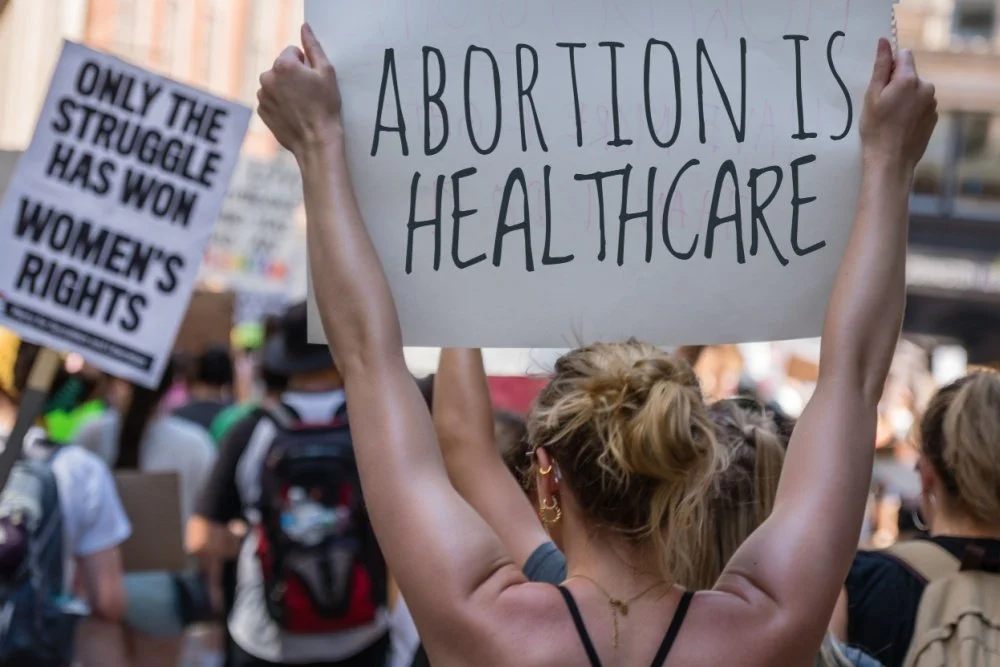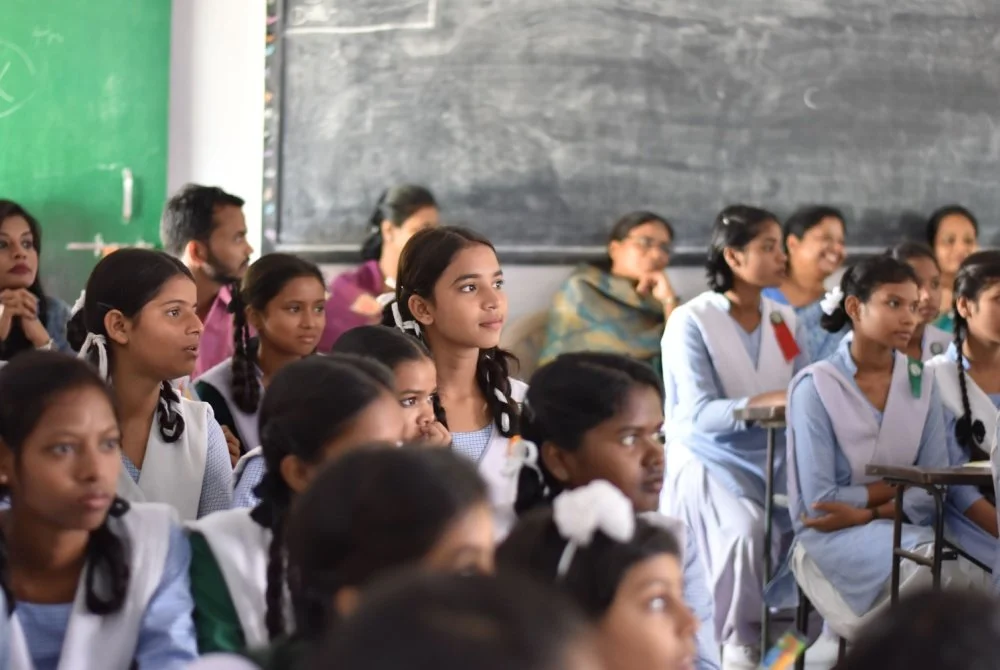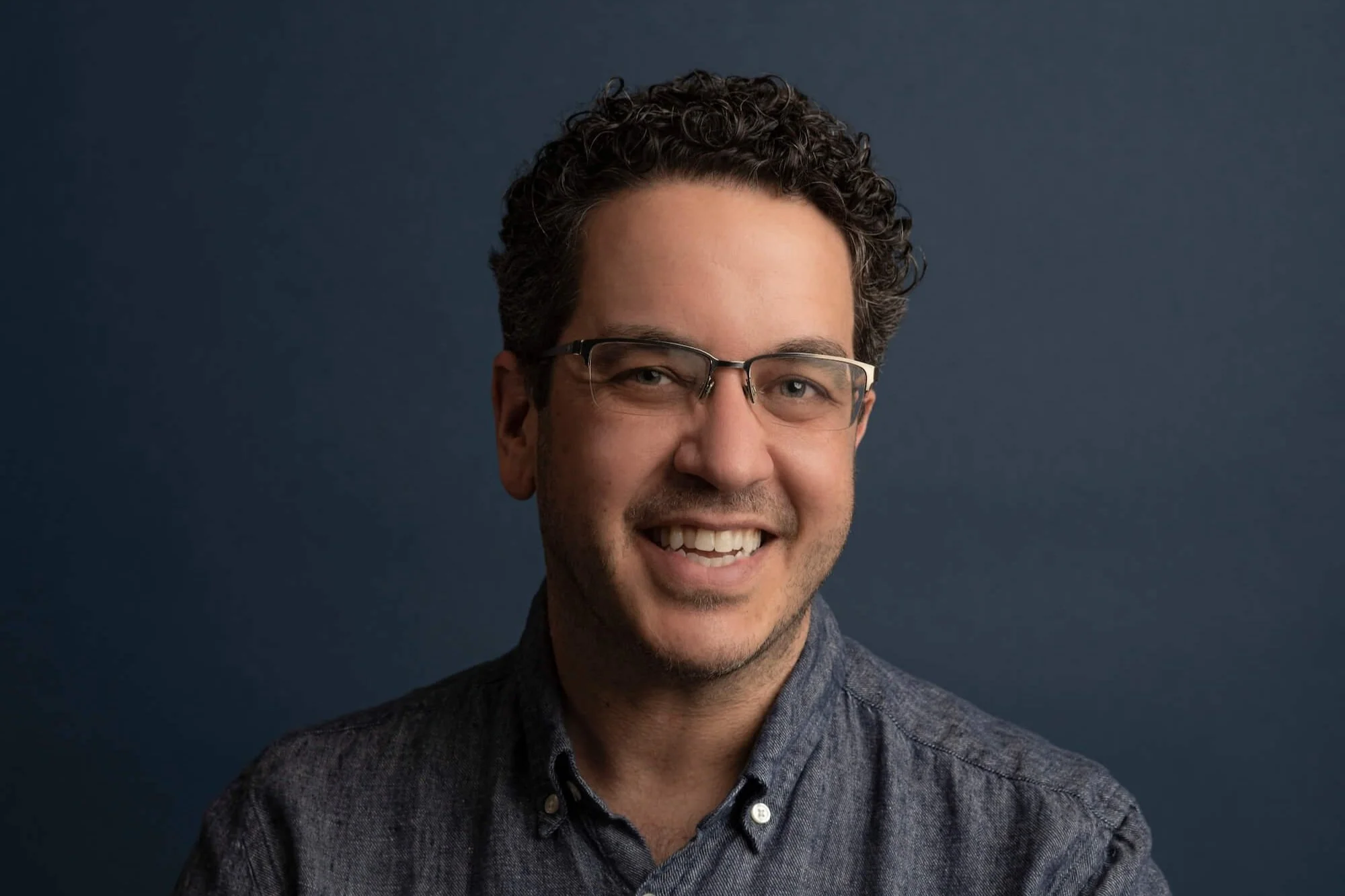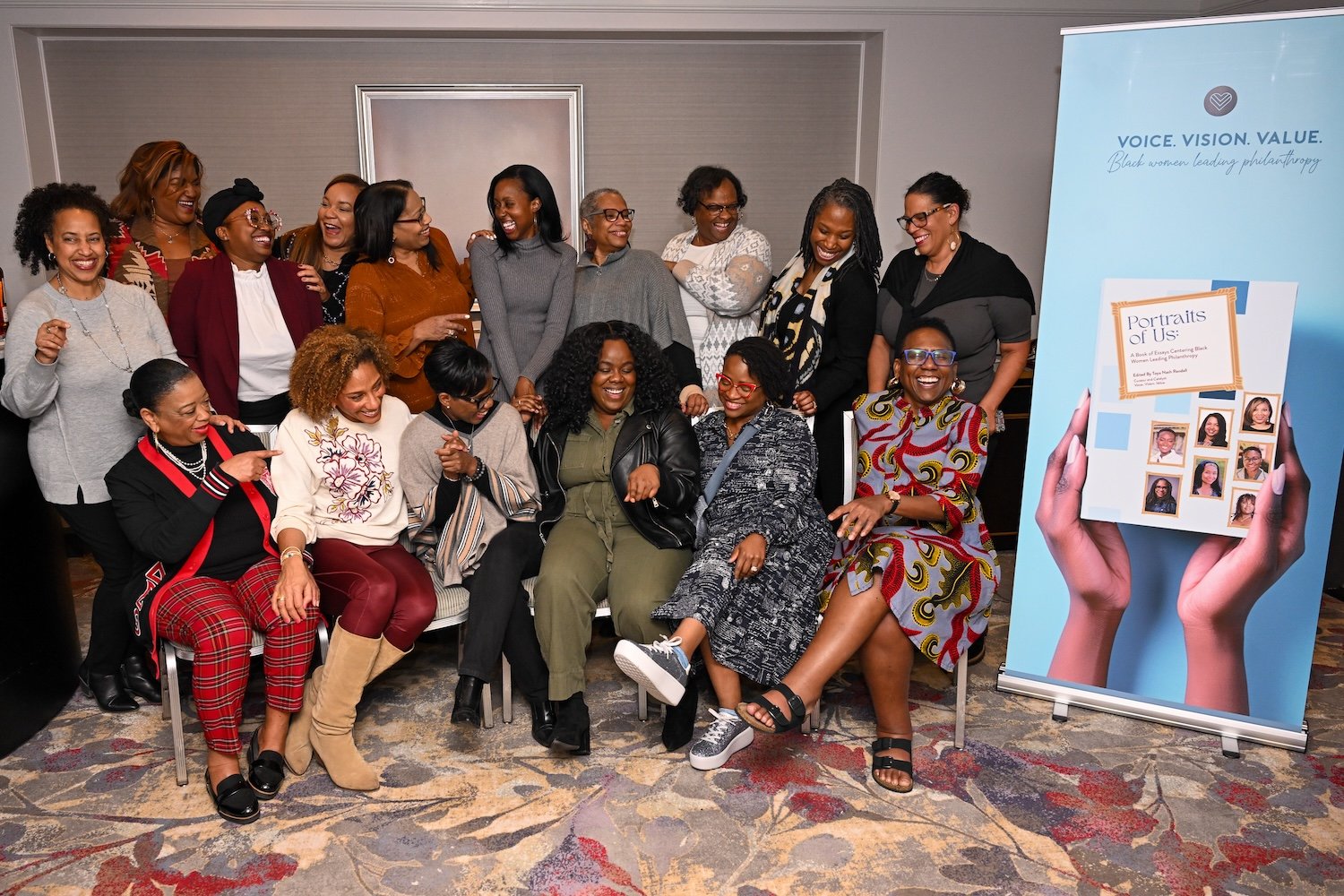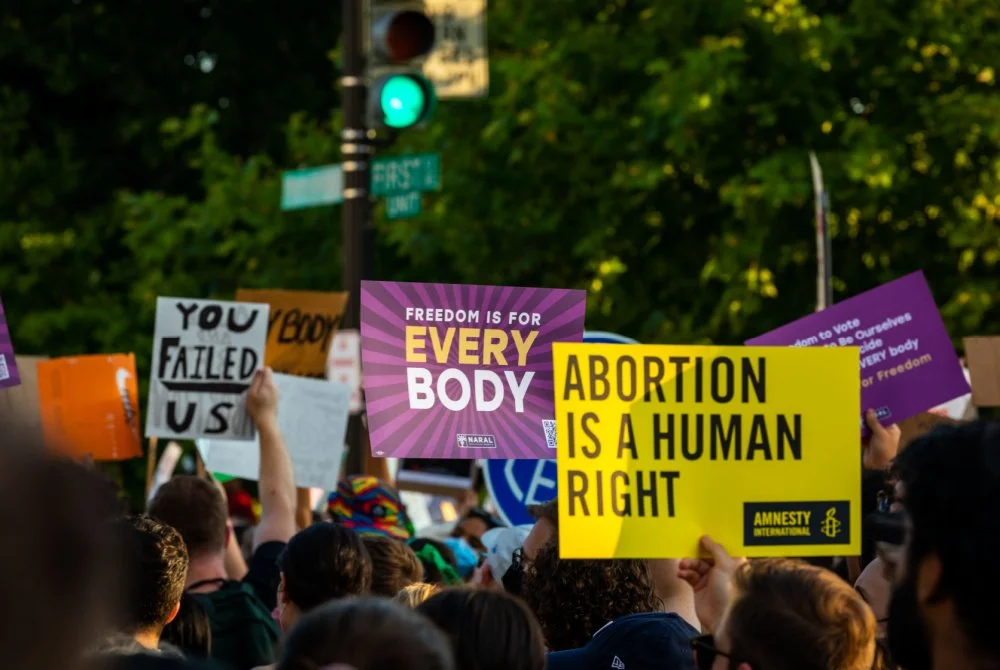Off the Sidelines: The Fund Propelling Women Into Office
/Andriy Blokhin/shutterstock
This article was originally published on March 3, 2020.
A record number of women ran for and won elected offices in 2018, and women make up more than half of the U.S. population. But they represent less than 30% of Congress, state legislators and statewide executives. “It’s time for a change,” according to the Ascend Fund, which is dedicated to advancing women in U.S. politics.
“We're encouraging people to step off the sidelines. We will create a space where we can see more diverse faces in civic leadership,” says Glynda Carr, president and CEO of Higher Heights, one of Ascend’s latest grantees. Higher Heights focuses on building black women’s political power. Carr references Shirley Chisholm, the first black woman elected to Congress, who said, “You don’t make progress by standing on the sidelines, whimpering and complaining. You make progress by implementing ideas.”
The Launch of Ascend
Ascend received seed funding in 2019 from Melinda Gates’ investment and incubation company Pivotal Ventures. Supporting Ascend is one branch of her commitment to devoting $1 billion to U.S. gender equity. In the Gates 2020 annual letter, Melinda called for “fast-tracking women in leadership positions in critical sectors like government, technology, finance and health.”
Nicole Sawran, Pivotal senior lead of program strategy and investment, says it supports Ascend “to ensure government reflects the diversity of people they represent.” Ascend is managed by the action tank Panorama Global, which facilitates donor collaboratives and also engages social issues in other ways. Panorama was founded by Gates Foundation alum Gabrielle Fitzgerald, who is now CEO.
Earlier this year, Ascend announced two grants to nonprofits that recruit and train women candidates—New American Leaders and VoteRunLead each received three-year grants of $1.5 million. Now, Ascend has announced its latest round of grantees, which will focus on state legislatures. Ten nonpartisan groups serving diverse women received $850,000 in total in general operating support. “We're looking across the spectrum of different types of women that we're trying to reach in different geographic locations,” Fitzgerald says.
Besides aligning with the growing interest in women and girls of Gates and other funders, this fund also falls in step with a greater focus on democracy throughout the philanthrosphere, especially since the 2016 election. We’ve seen new funding for civic participation and issues like the census, voting and civil rights, and it’s not likely to slow down before November. See our recent coverage of how philanthropy is shaping the 2020 election and what leading political donors are up to, including, of course, candidates Steyer and Bloomberg.
Barriers to Political Success for Women
In 2019, the Ascend Fund spent $1 million working with nonprofits including Running Start and the Groundswell Fund on research into the barriers that keep women from office. The lack of an “old girls’ club” in U.S. politics is one; many women lack the political connections, experience, role models and mentorship that could help them run and win. However, when they do run, women are just as likely to win as men.
Political parties working to keep or gain a majority often seek to maintain the status quo (white men in office), the report stated. This was found to be especially true for the Republican Party, wherein women were often viewed as unknown and/or innately less conservative.
In our democracy, “leadership looks like a white man,” Carr says. “Being able to say leadership comes in all races, genders, sizes and ages creates an environment for black women to run, win and lead.” She says a culture shift in this direction is among Higher Heights’ strategies.
The Ascend report found many groups encouraging women to run for office were partisan and liberal-leaning. Emily’s List, which seeks to help pro-choice Democratic women get elected, is one example. Ascend does not support specific candidates and intends to remain nonpartisan.
Other challenges related to holding office include taking a job far from home that is billed as part-time, but which often requires full-time work and offers insufficient compensation, especially at state and local levels. Women who are caretakers can face significant barriers in these realms. One new Ascend grantee, the Vote Mama Foundation, works to enable mothers to run for office, in part by addressing child care costs.
A few other roadblocks identified include sexist media portrayals of women, and online harassment. Many of these factors can contribute to a “lack of self-confidence.” Low levels of experience, representation and support can undermine the development of women’s political confidence. The paper described “feelings of incompetence and deference,” reported by some women, which brings to mind the “Three D’s” of traditional femininity as described by gender equity pioneer Riki Wilchins: being deferential, desirable and dependent. These cultural gender norms (expectations of how to be a woman or man) can play a role in whether women seek out political leadership, which again raises culture change as an important gender equity strategy.
Ascend’s 2020 Vision
Moving forward into 2020, the Ascend Fund has three stated priorities. The first is to focus on state races. Its research revealed that many groups encouraging political participation and women candidacy tend to focus on the federal level. State offices hold more than 7,500 available seats, compared with 535 in Congress. Focusing on these legislatures “is an opportunity to bring a larger number of women into the political process,” says Abby Hodgson, director of Ascend at Panorama.
The second 2020 focus is to help women who receive political training actually go forward and seek office. Few projects currently recruit women for specific seats. Ascend aims to work with grantees to help women find a race, run and win. IGNITE is among the 10 new Ascend grantees, and it is taking a targeted approach in Ohio. Fitzgerald says they intend to “blanket the state with training and events to try and get the younger women of Ohio really focused on this.”
The third Ascend priority this year is to “challenge conventions” and recruit women from diverse backgrounds. The latest round of grantees includes several groups that work in this realm—Victory Institute, for instance, supports openly LGBTQ leaders. The Asian Pacific American Institute for Congressional Studies, LatinasRepresent and Higher Heights are a couple of other examples.
Higher Heights considers itself a “political home for black women,” Carr says. Ascend’s grant will support, in part, a long-term fellowship to develop black women’s leadership skills. Carr discusses finding and training black women who are already “doing great work locally, [from] my best friend, who is a stay-at-home mom, who’s a super PTA volunteer, to a woman who’s running a local nonprofit; these are the types of women.” Higher Heights aims to help them take “their leadership to another level, to public office,” she says.
Other Strategies and Suggestions for Funders
As well as inviting funders to join its ranks of supporters, Ascend’s report offers other recommendations for philanthropists who want to support women candidates. While Ascend takes a nonpartisan approach, it suggests funders consider backing not just c3 nonprofits, but c4 organizations, PACs and 527s. Other suggestions include acting with urgency and offering renewing general operating support. Ascend’s research found groups that work to train candidates are vulnerable to the “boom and bust” cycle of political funding.
One of the fund’s own goals is to provide consistent support. While nine of the 10 new grants are one-year grants, Fitzgerald says, “We see this as a test year to learn more about the organizations, to understand what they're doing, and what they're capable of, and then, hopefully, enter into a long-term relationship.” Running Start is the one grantee that got a three-year grant in the latest round. This is because Ascend worked with them previously through the research initiative and was already familiar with their work.
All of the new grantees are “quite small,” Fitzgerald says. “We believe that we can [help link] them together and make sure they are maximizing their capacity by looking at how they can share resources and training curriculum, so this is not a lot of reinvention of the wheel.”
Along with Gates, some anonymous donors have contributed to the Ascend Fund, and it accepts donations online. Ascend has not announced the fund’s size nor a fundraising goal. The fund plans to invest in organizations supporting gender parity in office during the next three years. It intends to announce another round of grantees before the 2020 election.
Fitzgerald emphasizes grants are not tied to any specific election outcomes, and that the fund has a longer view and game plan. Patience is also among Ascend’s recommendations for philanthropists interested in this work. This falls in line with a growing recognition among politically minded donors that, along with short-term wins, building sustainable power is a necessary goal.
Fitzgerald says, “This is a problem that’s going to take a few years to make traction on—[that’s] being optimistic… We believe that by supporting these groups over the long term, we can get to gender equity in elected office in the U.S.”


